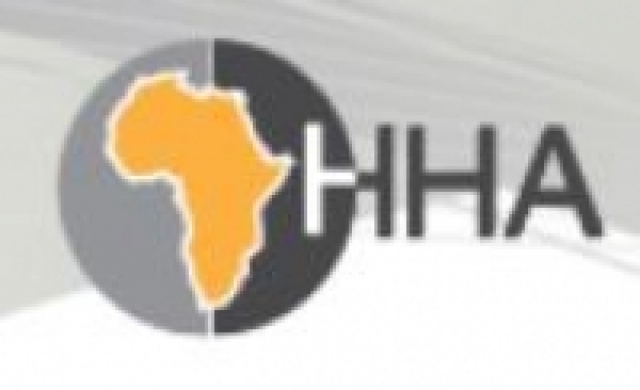HHA partnership expands its membership and advocates for consideration of universal health coverage in the post-2015 agenda
 Dakar, 14 November 2013 -- The Harmonization for Health in Africa (HHA) partnership has expanded by admitting the Roll Back Malaria partnership to its membership. The admission of Roll Back Malaria took place in Dakar on Thursday at the opening of the 8th Annual Meeting of Regional Directors of agencies of the HHA partnership that now has 15 members.
Dakar, 14 November 2013 -- The Harmonization for Health in Africa (HHA) partnership has expanded by admitting the Roll Back Malaria partnership to its membership. The admission of Roll Back Malaria took place in Dakar on Thursday at the opening of the 8th Annual Meeting of Regional Directors of agencies of the HHA partnership that now has 15 members.
Speaking on the behalf of the agencies, the WHO Regional Director for Africa, Dr Luis Gomes Sambo welcomed Roll Back Malaria partnership and highlighted its comparative advantages.
“Promoting the health of communities is at the core of our action. We should contribute towards accelerating progress in significantly reducing the prevalence of communicable diseases especially malaria, tuberculosis and AIDS, on the one hand, and maternal and infant mortality, on the other, said Dr Sambo.
He added that this progress will be possible, thanks, among other things, to the harmonized efforts of the partners to respond to the priorities of countries. In this regard, the establishment of the HHA mechanism is a step in the right direction.
The WHO Regional Director outlined the way forward in the post-2015 development agenda in terms of consolidation of the efforts to achieve the health Millennium Development Goals (MDGs) and the reduction of the incidence of noncommunicable diseases and neglected tropical diseases.
Dr Sambo reaffirmed WHO’s commitment to continuing advocacy for universal health coverage in order that the approach becomes a focus of HHA efforts for the post-2015 development agenda and stimulates countries to contribute towards achieving health goals and poverty reduction.
Addressing the gathering, the UN Women Regional Director for West and Central Africa, Dr Joséphine Odera, who chaired the session alongside with Dr Sambo, indicated that HHA is capable of influencing health systems strengthening through its core mission that centres on harmonization and collaboration. She said “that is crucial for the integration of priority health matters including women’s health.”
“It is time to take a very close look at the fundamental mission of the HHA platform to better achieve the objectives and outcomes outlined in the 2013-2015 action plan”, she stated.
She concluded her address by saying that “we can use the HHA platform to influence change of mentality especially among health policy makers”.
This first day was also marked by the presentation of the report of the expert committee that met in Dakar from 12 to 14 November 2013 and the holding of a panel discussion on the value added of the HHA partnership. The panel was chaired by the UNICEF Regional Director for West and Central Africa, Mr Manuel Fontaine who was flanked by four speakers respectively from the WHO Country Office in Gabon, UNICEF Office in Kenya, UNFPA Office in Mozambique and UNAIDS Office in Mauritania.
When they took the floor, the speakers highlighted the following: HHA local partnership has contributed to the inception of health systems strengthening, establishment of national health accounts and the signing of the Compact in some countries. They cited some of the major challenges and made recommendations for enhanced communication among the various levels of HHA, strengthening of advocacy at the highest level for the health sector and HHA, and assessment of health system performance.
Other recommendations concern the implementation and monitoring of the national health development plan, support and joint reporting of HHA activities at country level, and opening of the HHA partnership to institutions that have no regional representative office or that operate in major areas of health such as food, water and sanitation.
The meeting of Regional Directors of HHA member agencies is aimed at reviewing and learning lessons from the progress made in the implementation of the 2013 HHA action plan and to set the priorities for 2014. The participants will also discuss the ways and means of strengthening harmonization and coordination of interventions at national and regional levels. They will also examine the monitoring and evaluation framework of the HHA mechanism and deliberate on the place of HHA in the new post-2015 development agenda.
_____________________________________________
For more information, please contact:
Khalifa Mbengue: +221 77 545 83 81, mbenguek [at] who.int;
Mariam Tendou Kamara: +221 77 740 47 89, mariam.kamara [at] unwomen.org;
Flavienne Issembè: +221 77 709 69 62, issembe [at] who.int


